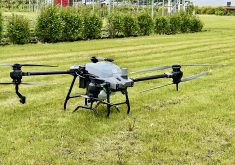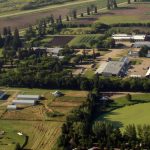It’s never been tougher to predict the future of agriculture. Amid the very real challenges, we can all agree there are also some potential opportunities ahead. But who is going to seize them, what will their farms look like, and will their lives be anything like the lives of today’s farmers?
Do what I did. Next time you’re facing some highway miles, or even when you’re sitting down to supper, ask yourselves, what are the 10 biggest influences that will make our farms different in 2019?
Read Also

Producers aren’t panicking over tariffs and trade threats
The Manitoba Canola Growers Association (MCGA) surveyed its members this spring to get a sense of how trade uncertainty was…
1. Your neighbours. Farming is both co-operative and competitive, whether it’s among next-door neighbours or between farmers in neighbouring regions. Will they expand on land you want to farm? Will they open up new marketing opportunities or lock you out? Intense pressure on farmers to get there first will change the risks and rewards of our business.
2. Non-ag money. As food surpluses vanish, more corporations will buy more land to lock in cost and supply for large processing plants. We’re seeing it already.
3. How you sell. eBay isn’t a fad. Agriculture has barely begun to look at technology for sales. Within a decade, we will see a big competitive advantage for tech savvy farmers who can lead the way.
4. Breaking the livestock link. We’ve seen how ugly it can get when livestock demand doesn’t control the price of feed. By 2019, there will be a new equilibrium. I just wish I knew what it will be.
5. Commodity farming. Population projections may be astronomic, but if there’s a buck to be made, farmers on the other side of the world will reach for it and input suppliers will get the rest. Canada will win by branding its quality.
6. New markets. Speciality oil canola and soybeans are just the start. Major opportunities will emerge for identity-preserved crops, industrial crops and nutraceuticals.
7. Weather. By 2019, many crops will boast drought traits. Weather won’t disappear, of course, but unless global climate change hits harder and faster than expected, we’ll be a lot less vulnerable to weather in 10 years than we are now.
8. A different Canada. Ethnic will no longer be niche. And our farms will no longer be so white.
9. Government steps back. Government will always need to support rural Canada, just as it does cities. The outlook for traditional farm programs though is bleak.
10. Succession. Based on nothing better than a seat of the pants guess, I’d say only half of today’s farms are doing a top job of preparing to transfer the farm to the next generation. There are all sorts of reasons, many of them good. But by 2019, we’ll sure be able to tell the difference.
10+. Pride. Farmers are world leaders at adopting change. Still, the age-old family farm is remarkably efficient. Despite anything above, I wouldn’t bet against it.
Let me know your list. I’m at tbutton@ twinbanks.com,or you can reach me at 519 674-1449.















